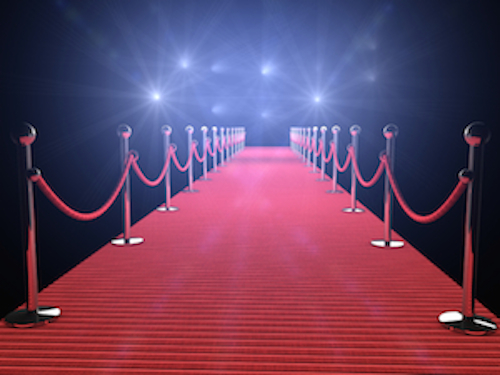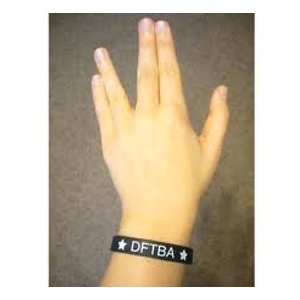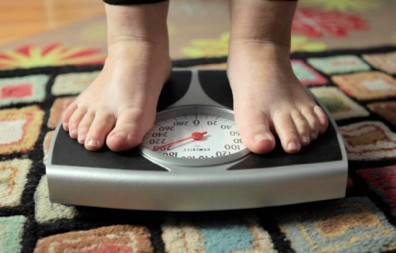(Note: These are the three essays I wrote right after the Sept. 11th terror attacks.)
It was my first day back from vacation. I had worked a normal overnight shift at The New York Times website on Monday, covering international news and preparing for the upcoming mayoral primary.
In fact, I had just sent out my wrap-up e-mail to the day shift editors when the first jet plane hit the World Trade Center.
The rest of the office staff gathered in horror around the television screens; I returned to my desk and broke the biggest story I’ve ever produced. I wouldn’t return home for 20 hours.
The editorial staff that lived in Manhattan raced to the news room and joined me in my task. Advertising reps and marketing experts offered their services to the news room, tirelessly gathering facts and quotes from the phones. They compiled lists of blood donation centers and gave us transportation information. A team spirit permeated the 9th floor even as concern for friends and relatives in the attack zone settled just under our skin.
The news unfolded, but I did not cry. I did not get angry. I didn’t even get scared. Instead, I remained calm and continued my working vigil in front of the computer screen.
While I wrote, the carnage continued. A second plane was hijacked and aimed into the World Trade Center. A third plane hit the Pentagon. The twin towers collapsed. A fourth jet smashed into the Pennsylvania countryside.
People all over the world watched the events and were filled with terror and worry. I stressed over the capabilities of our graphics server to handle the huge influx of traffic. What good were timely news stories when no one could access them?
For hours I was filled with the journalist’s high. Adrenaline pumped through my veins. I forgot to eat and a single can of diet Coke saw me through any caffeine urges.
I would still be sitting there jamming out stories if my bosses hadn’t pried me away from the desk with strict orders to get some rest. “This is going to continue for weeks or months, Jade,” they said. “Don’t overdo it.”
So I went home and restlessly paced in front of my television. Here I was helpless. But at work, I had a useful purpose and I yearned to return.
On Wednesday night, I struggled to get back into Manhattan. The destruction had closed off access to all the bridges and tunnels near my home. Most of the subways were diverted in order to avoid heading into the city. But I was determined. I took three trains and walked two miles through the darkness to enter my office in midtown.
As I reached the 9th floor, I was accosted by a coworker who told me that a bomb threat had led to the evacuation of the Empire State Building and Penn Station, both mere blocks from our building. This event would only be the first in a series of such threats.
Later the next day, several other spots around the city would be evacuated including Grand Central Station and 1 Penn Plaza. These scares led the police to shut down parts of Manhattan and cancel all subway service south of 42nd Street.
I was trapped in the city.
I didn’t worry too much, though. I’d been taught by an old mentor that the first rule of journalism was simple: If you’re going to die, make sure you do it big enough to make the front page. I didn’t have a death wish, but I had already accepted the possibility of dying at the hands of terrorists.
Instead I was completely focused on doing my own small part in covering this news event. I had a job to do and I was going to make a damn good effort. In times of great horror, the public is starving for information. I needed to feed that hunger with the truth.
This purpose kept me at work until Friday when exhaustion (and the need to feed my cats) guided me home to my Brooklyn attic. Even as I entered the apartment, I yearned to be back on the job facing bomb threats and covering the president’s visit to the crash site.
Though I was a bit weary and shell-shocked, I wasn’t ready to stop. Rescue attempts needed to be acknowledged. The investigative process required examination. Family members needed the opportunity to publicly mourn the missing and dead. And heroes deserved recognition.
There were still so many stories to tell.
–This essay appeared in the book “09/11 8:48 AM; Documenting America’s Greatest Tragedy By BlueEar.com (CreateSpace Independent Publishing Platform – Sept. 25, 2001)
Posters
By Jade Walker
The subway wall is usually covered by graffiti.
Most of it resembles black scribbles on a white canvas, incomprehensible splotches of spray paint containing what appears to be profanity and monikers. The names tagged there are rarely readable, their meaning obscured by my ignorance of the local gang’s language.
The transportation arm of New York City often dresses the wall with notices, sheaves of paper containing subway lines and calendar dates. These signs tend to confuse more than inform, or simply outlast their usefulness by remaining taped to the wall weeks after they’ve expired.
In the summertime, Hollywood replaces these notices with pictures of teen flicks and the latest action hero’s mug.
I’ve never seen a pristine movie poster in the subway. Someone always defaces it with markers or knives. Arnold gains a few new scars. Julia loses some of her teeth. And occasionally, word balloons tell me exactly what Mel is really thinking women want.
Today, as I passed the wall, two new posters caught my eye. One showed a man smiling. In his arms, he cradled an infant. The baby was swathed in a blue blanket, and in truth, it was the cloth’s brilliant hue that caught my eye.
Below the image was his name, a phone number and a single word: MISSING.
Next to this poster was another. This one showed an intelligent looking man wearing a dark beard and a dust-covered turban. His name was written in block letters above the picture. Below it, the words: MISSING, WANTED: DEAD OR ALIVE.
Each poster held my rapt attention, each bearing a profound message that filled me with grief and foreboding. I knew that in the near future, both of these men would be declared dead and that thought sent a shiver racing across my skin.
I wonder if their memories will outlast the lifespan of their posters.
The Weakness In Me
By Jade Walker
I still haven’t cried.
It’s been a week since a group of two dozen terrorists hijacked ordinary commercial jets and turned them into weapons of war. I watched each crash, shot on amateur video and aired on CNN, using my peripheral vision. Most of my attention was focused on the computer in front of me as it filled with instant messages, e-mails, photos and articles.
Even after working double shifts for five days, exhaustion didn’t wear down my defenses enough to allow me to shed a tear. Normally that would do it.
Not this time.
Over the weekend, I studied every replay of the crashes. I listened to the heartbreaking stories of loss — the father whose two daughters worked and died in the same office; the woman who had to have her feet amputated and reattached; the siblings of the pilot who fought the hijackers even as his plane crashed into the countryside. They all touched me, but still my emotions were reined in.
People cry for many different reasons. Some weep for those they’ve lost, or who still may be struggling for air underneath the rubble.
Some weep in sympathy. They didn’t know anyone in the Pentagon, the World Trade Center towers or on any of those planes, but they can imagine that kind of pain.
Some people weep for the innocence America has lost now that our isolationistic attitude has been beaten out of us with blood and fire.
Some cry guiltily, sad that they made it out of the buildings when others died; upset that they watched the events from the relative safety of their televisions or the outer boroughs while thousands of Americans died.
Others weep in anger, their emotions welling up inside their bodies and leaking out of their eyes. It’s uncontrollable, this type of crying, and tends to only infuriate them as the tears fall down their cheeks.
Three times, CBS news anchor Dan Rather broke down on the David Letterman show. Rather, a veteran newsman who earned his chops covering the assassination of President John F. Kennedy, actually cried on TV. I couldn’t believe it.
One of my friends weeped in terror. Once the bomb threats started pouring into Manhattan, she worried for her safety and the safety of the people around her. She cried because the life she once loved, a fairly carefree existence of living in New York City and enjoying her late-20s, was forever tarnished. Now she lives in a constant state of fear. I tried to offer her a few comforting words, but I don’t think I succeeded.
Another friend of mine stoically cried as he described what he thought our next move should be. He teared up for those who’d already died, and for the Americans and Afghani citizens who are about to. I was so stunned by this display from such a strong man that I didn’t know how to react. At the time, I worried that touching him would have made things worse. In hindsight, I wish I had given him a hug.
Years ago, true crime reporter Edna Buchanan published a nonfiction collection called “Never Let Them See You Cry.” It discussed how crying at crime scenes was not a professional way to behave. Although the most hardened homicide detective will occasionally catch a case that’ll break him or her down, most do not cry over death.
It’s simply a part of the job.
I took this advice to heart and made it part of my personality. Now when I get into distressful or traumatic situations, I don’t cry. I calmly deal with the event at hand and work my way through it. Crying is rare and when it does happen, it’s only done in private.
At heart, I’m sad, lost, sympathetic, angry, guilty and horrified by what happened on Sept. 11. For the rest of the world, crying may be a release. But for me, I just can’t do it yet.


